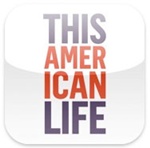 So Ira Glass touched a Daisey and got his fingers singed.* Glass, host of the popular National Public Radio show This American Life, aired Mike Daisey’s The Agony and the Ecstasy of Steve Jobs, a monologue about working conditions at Apple’s suppliers in China. Glass and his staff at This American Life thought Daisey’s assertions were factual. It turned out Daisey’s story was more “truthy” than literally true.
So Ira Glass touched a Daisey and got his fingers singed.* Glass, host of the popular National Public Radio show This American Life, aired Mike Daisey’s The Agony and the Ecstasy of Steve Jobs, a monologue about working conditions at Apple’s suppliers in China. Glass and his staff at This American Life thought Daisey’s assertions were factual. It turned out Daisey’s story was more “truthy” than literally true.
Daisey implied to Glass that he had seen first-hand the incidents he described, or at the very least had interviewed the actual Chinese workers who experienced them. In actuality, a lot of what Daisey said came to him at one or two removes. He didn’t personally see some of the things he said he did. Some of the Chinese workers he quoted were imaginary, the words Daisey put in their mouths based on stories and anecdotes he’d heard. Daisey’s monologue is a theatrical production. He took liberties with facts in order to make the story more compelling.
I hope NPR, always quick to fire and ask questions later in the face of right-wing criticism, doesn’t cancel This American Life. Glass tried to verify Daisey’s assertions before airing the show, but wasn’t able to fact-check everything and decided to trust Daisey’s word. That was a mistake, and Glass has apologized for it.
The story reminds me of the trouble Dan Rather got into at CBS when he was accused of using forged documents in an exposé of President George W. Bush’s military service. The documents Rather based his report on were supposed to have been copies of letters written by Bush’s military superiors. The documents confirmed long-standing rumors about the lengths Bush went to in order to dodge military service in Vietnam, first landing a safe, stay-at-home flying slot in the Texas Air National Guard, then blowing off even the light duties expected of him by his ANG superiors. Defenders of Bush claimed the documents were forgeries, and in the end Rather was forced to resign.
The stubborn fact remains, however, that George W. Bush did pretty much just what the disputed documents said he did. The letters, whether they were outright forgeries, copies of originals that had been retyped on computers, or actual originals, told the truth. The fact that Rather couldn’t prove the letters were the actual ones typed by Bush’s military superiors in the early 1970s was what got Rather fired, not the essential truth of Rather’s exposé.
There have been a number of factual and verifiable media reports about working conditions at Apple’s suppliers in China, particularly the Foxconn company, where a number of workers have committed suicide. It’s pretty clear that Mike Daisey, though guilty of sexing up the facts, is telling the essential truth.
When Upton Sinclair wrote The Jungle, he dramatized conditions in the meatpacking industry by telling the story through the eyes of two or three fictional characters. In actuality, the incidents of stockyard and slaughterhouse abuse he related came to him from a variety of sources, many of them third-hand, not witnessed by Upton Sinclair himself or any of the people he talked to while researching the novel. If Sinclair had written a dry study about conditions in the meatpacking industry, festooned with clarifications, citations, and footnotes, the public would never have heard of it, let alone read it, and the industry would have remained an unregulated horror.
Can Mike Daisey, Dan Rather, and Upton Sinclair be compared? I think so. All three, in their own ways, told the truth. Rather’s attempt to make a difference came to naught when the network he’d served for 43 years refused to stand by him. Daisey, like Sinclair, has had more impact — 21st century consumers are putting the same sort of pressure on Apple as early 20th century consumers put on the meatpacking industry. Ira Glass, unlike Dan Rather, is only collaterally involved, and I hope he doesn’t suffer for it.
——————–
On a related note, I’m provisionally thrilled over NPR’s new reporting policy, best summed up as “fairness to the truth.” This is a far cry from “fair and balanced,” also known as “he said/she said,” journalism, where the media bends over backwards to tell competing sides of any given story, even when it’s clear one side is lying.
Here’s an extract from NPR’s revised ethics handbook:
At all times, we report for our readers and listeners, not our sources. So our primary consideration when presenting the news is that we are fair to the truth. If our sources try to mislead us or put a false spin on the information they give us, we tell our audience. If the balance of evidence in a matter of controversy weighs heavily on one side, we acknowledge it in our reports. We strive to give our audience confidence that all sides have been considered and represented fairly.
Let’s see if you can live up to that, NPR. I’ll believe it when I hear Diane Rehm interview a climate change scientist without giving equal air time to an oil-industry funded climate change denier. Think you can do that? I wonder if you can.
* Sorry about the terrible pun … I couldn’t resist.
Update (later, same day): I should have vetted my own “facts” before clicking publish: This American Life is a Public Radio International show, not an NPR production … though it is carried on many NPR affiliate stations. My mistake.